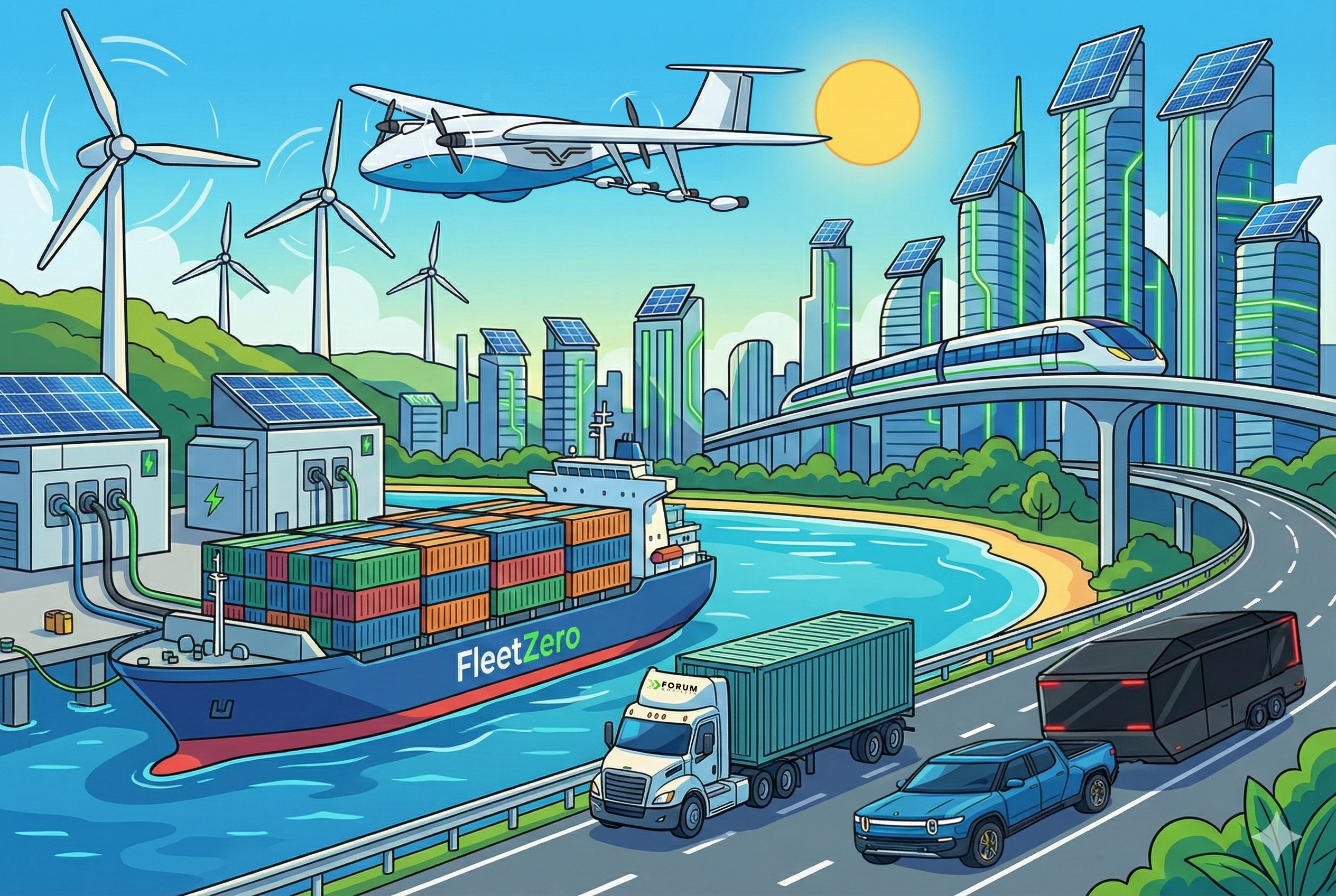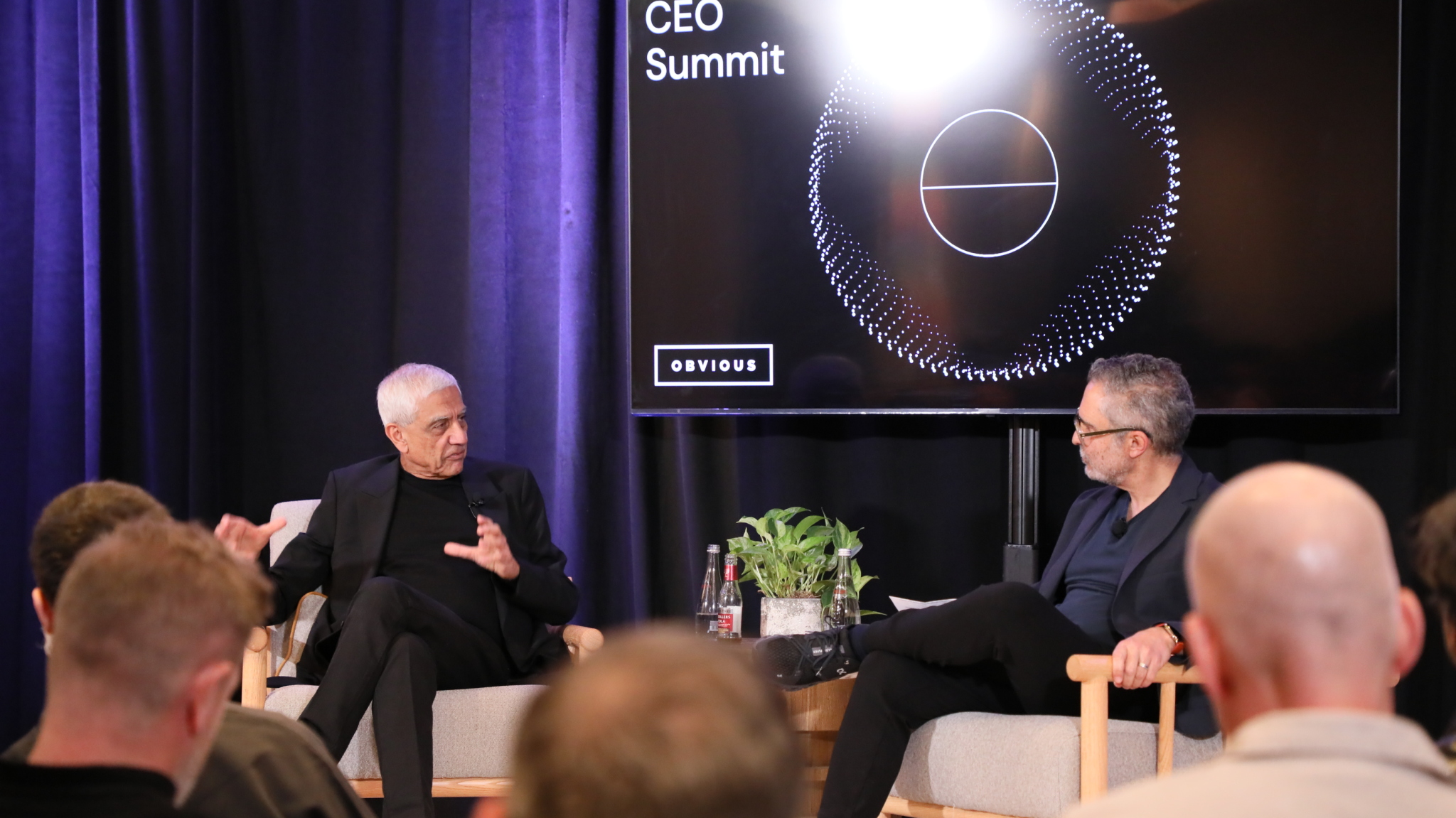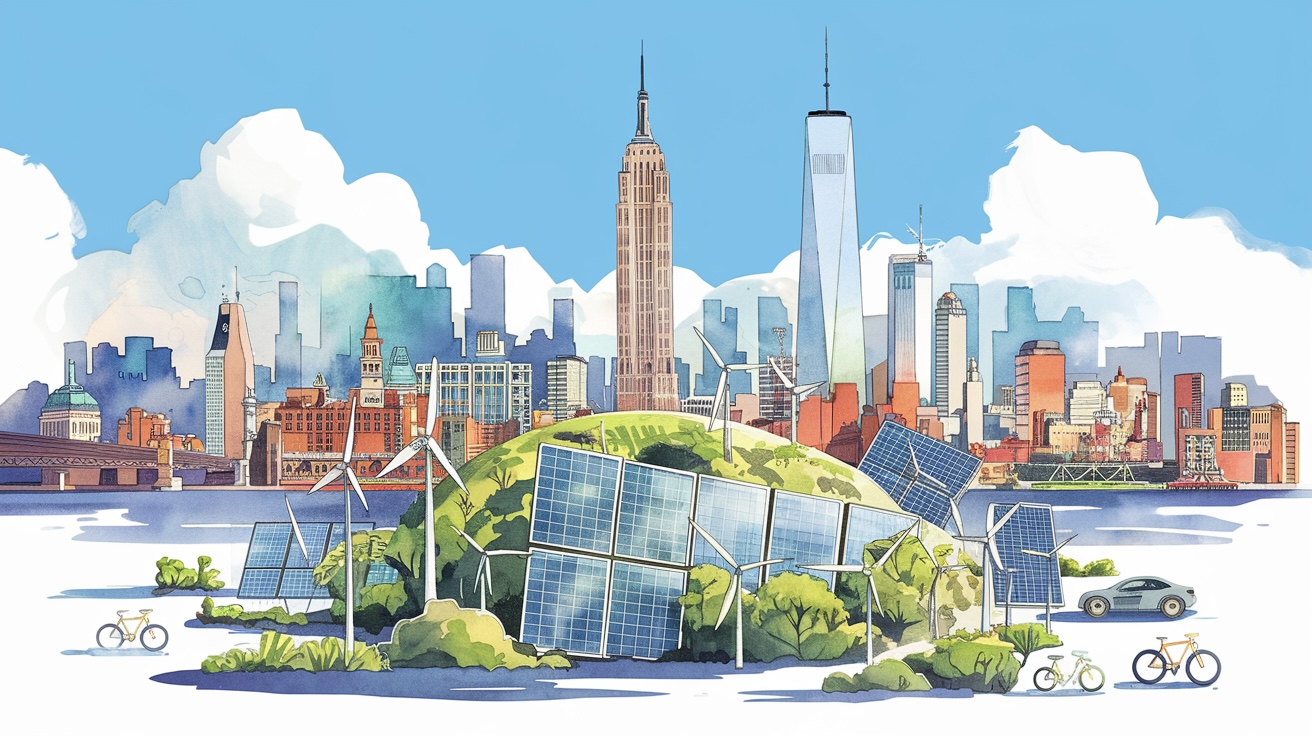Planetary Health
Tesla Alums Electrify RVs
Just past the entrance of the research and development headquarters of Lightship, in San Francisco’s Potrero Hill neighborhood, to the left of the workshop where the engineers gather to test new drive trains and electric water heaters, there’s a small red frame that hints at the humble origins of this startup that is building America’s first all-electric travel trailer.
It all began, the framed story explains, with an electric waffle maker.
The year was 2019, and Lightship co-founder Ben Parker had spent the past five years working at Tesla as a battery engineer. As you do when you’re a tech-minded 20-something, Ben also had a pet project. He wanted to electrify Bay Area food trucks. All that time standing in line for tacos and roti, trying to make himself heard over the roar of gas-powered generators, gave him the idea.
“I couldn’t stand yelling over those generators,” Ben says. As someone who specialized in building quiet electric batteries, he knew it didn’t have to be like that.
He began by placing energy monitors on the trucks of willing food vendors and set about designing a solar-enabled power wall that would be the same size and weight as a generator. As he talked to friends about his project, RVing would often come up in conversation. While on a road trip for a friend’s birthday, a friend of a friend really drove it home: “Aw man, you should look into RVs with this idea. I think there’s something there.”
The son of innkeepers on Nantucket Island, Ben didn’t grow up RVing. But he loved camping and road-tripping, and when he looked at the stats, he was blown away. RVs, it turns out, are as American as apple pie and a giant market. One in 10 Americans own one, and half a million are sold in the U.S. every year, of which 90% are towables.
Lockdown inspiration
As the world retreated indoors in early 2020, Ben sensed his moment. “If I am going to be cooped up in my apartment for months, I should definitely do this now,” he said to himself.
So he quit his job at Tesla and got to work. To learn more about the industry, he rented an RV and took off on a three-month fact-finding road trip that involved lots of interviews with RV owners at campsites around the West. By late 2020, Ben had designed and built an electric generator. On a clear winter day, he loaded the generator into the back of his pick-up and hauled it to San Francisco’s Marina Green, where he inaugurated it by serving champagne and those infamous electric-powered waffles to friends.
By this point, Ben had realized that he wanted to build more than just an electric generator to power an RV at a campsite. He learned through his research that the best forward was to build the entire RV and he knew he needed a co-founder to do so.
“I’m good at getting people excited,” he says. “I’m also way better as a collaborator than I am as a single leader.”
An entrepreneur in the wings
When Toby Kraus first heard about Ben Parker and his electric RV idea, he was dubious. Toby was an entrepreneur in residence (EIR) at Eclipse Ventures, figuring out what he was going to do next after spending his career working on electric vehicles. He joined Tesla in 2009, when it was a 450-person startup and had led the finance team, and worked as a product manager on the first Model S. He then spent five years at the electric bus manufacturer Proterra.
After a mutual acquaintance connected them, and Toby heard Ben’s pitch, he was skeptical.
“I thought it was this niche market,” he recalls with a chuckle. But after doing a bunch of research, he was blown away. “It turns out it’s an enormous industry in the United States.”
Like Ben, Toby also loved that an electric RV would bring electrification to a new demographic: people who have not previously been buying electric products.
After some initial co-founder “dating” — collaborating on Zoom calls for a few weeks — Ben and Toby sealed the deal with a product and relationship testing road trip from Colorado to California in a rented Tesla Model X with a tow trailer.
“It was an insane, insane trip,” recalls Toby. The co-founders learned firsthand just how inefficient it can be to tow a trailer with an EV. Their vehicle’s 300-mile range plummeted to 90 miles, and their 20-hour trip became 50. “You’re literally spending more time charging than you are driving.”
The trip left them with a clear takeaway: the need for their product was real.
In May of 2021, Ben and Toby co-founded Lightship, naming their company after a famous boat from Ben’s home island of Nantucket. Obvious led their Seed round weeks later, allowing the co-founders to begin building their core team and their product: An aerodynamic, battery-powered, towable RV that doesn’t affect your range while you’re towing it and can act as a powerwall when it’s sitting in your driveway.
An insane sprint
The night before the start of South by Southwest 2023, the Lightship team was in a panic. They were revealing their trailer prototype to the public the next day. After an insane sprint to get the vehicle ready, they were still putting on the finishing touches—the glue holding in the windows was literally still drying. Meanwhile, Silicon Valley Bank had failed that day, and like many startup founders, Ben and Toby were very worried that they might not be able to make payroll.
“We were stressed out as hell,” recalls Toby.
The purpose of the launch was to validate if they had product market fit. Would people like it? And if so, would they like it enough to put down their hard-earned money to reserve the product?
The short answer was yes.
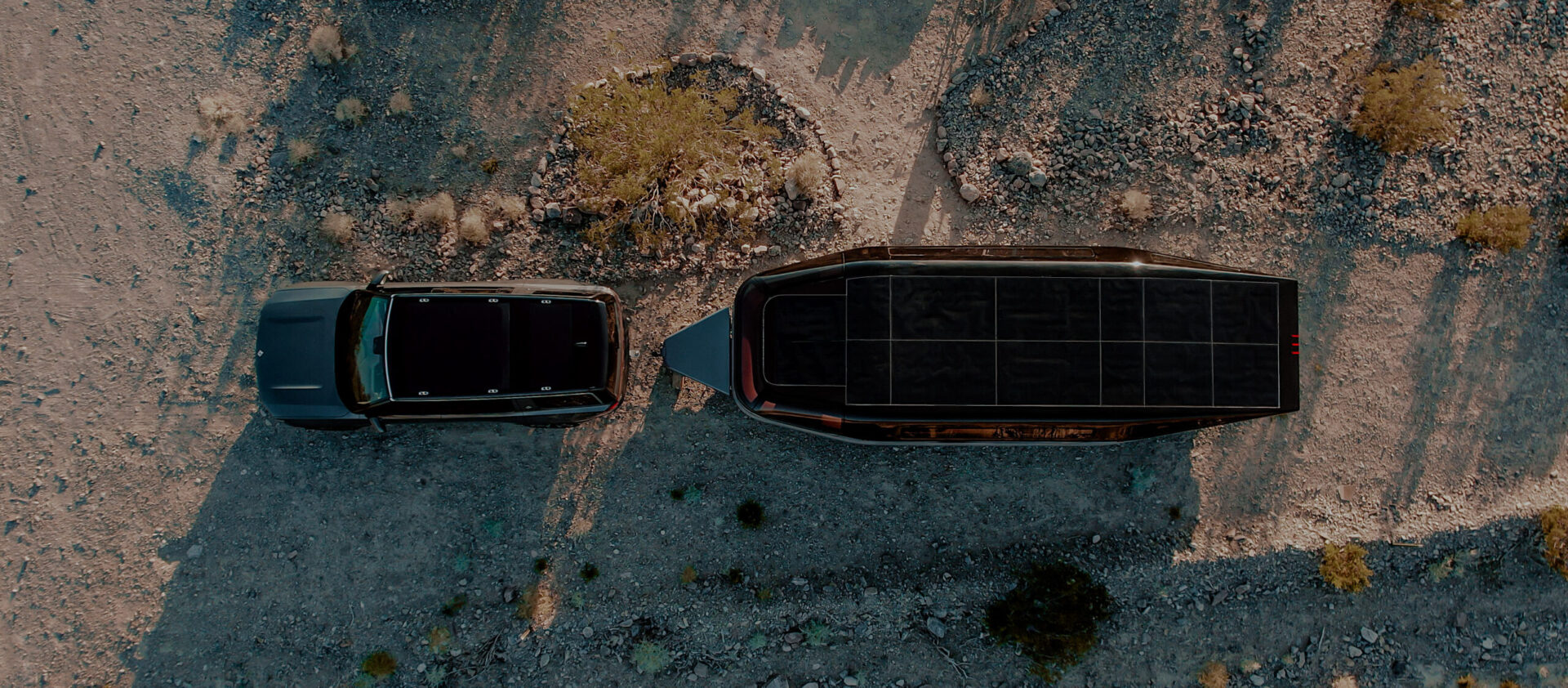
The following day, thousands of people began streaming in to see the Lightship. And it was eye-catching: a sleek fixture with giant windows and a modern interior that sleeps four to six and features pink and gray fabric with eclectic lime trim, recessed lighting, and the streamlined feeling of an airplane.
The enthusiasm for the Lightship was palpable. One guy even booked a flight from California to Austin that morning just to check it out. What’s more, the pre-orders began rolling in. (They also made payroll.)
“Ben called me in tears. We were watching our Stripe account, and it was just flying,” recalls Toby. “An order was coming in every couple of minutes.”
A productive year to come
This January, Lightship announced their Series B funding, co-led by Obvious, which will enable them to fulfill all those pre-orders and bring their product to market. The company recently signed a lease on a massive production facility in Broomfield, CO, with plans to begin production at the end of this year.
The team is currently focused on the challenging tasks of building a supply chain and manufacturing system for a very complicated product.
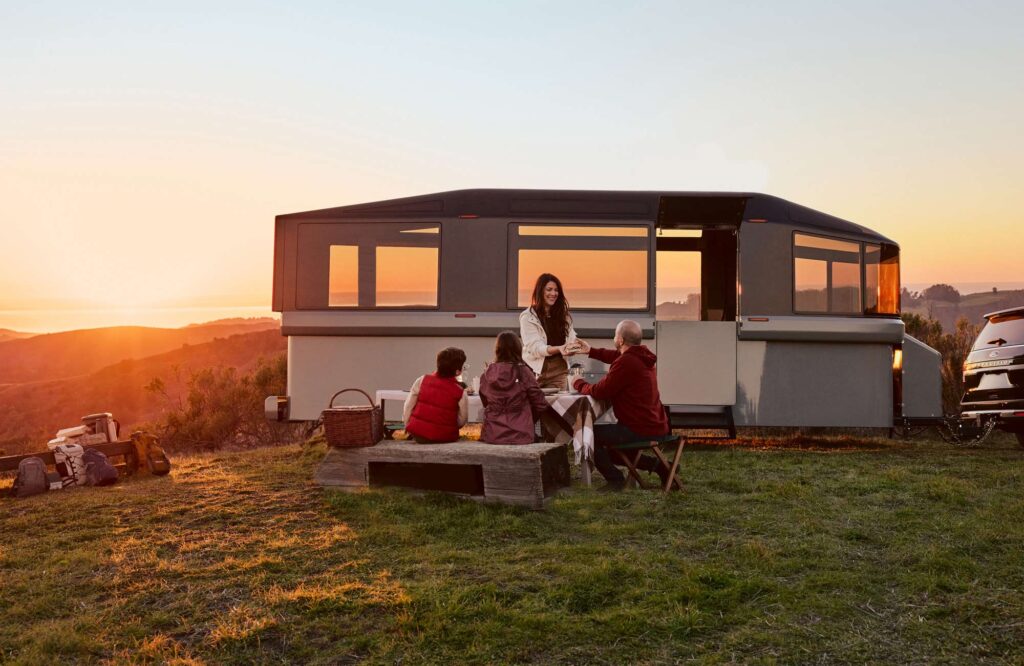
“We are probably building the great first all-electric product that many of our buyers will own,” Ben says, as he stands in front of the trailer prototype at his San Francisco offices, shaking his head in wonder at the journey from electric waffle maker to designer travel trailer. “It’s still shocking that this exists.”
Obvious Ideas



